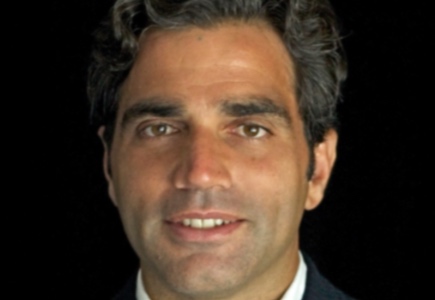By Joseph Luzzi, Ph.D.
Americans are reading 30 percent less than they were about a decade ago, and in our media- and screen-saturated world it can often seem difficult to find the time and space to curl up with a book. If you’re not already a reader, the prospect of taking on challenging literary works can seem daunting. Enjoying a Jane Austen-inspired film starring Emma Thompson and Hugh Grant is one thing; delving into the majestic but dense prose of Sense and Sensibility is another.
But you shouldn’t feel surprised or dismayed if you pick up a challenging read for the first time and find yourself falling asleep by the second page. After all, you probably wouldn’t attempt to run a marathon without ever having jogged around the block, or volunteer to cook dinner for your foodie friends if your best dish is macaroni and cheese. The same principle applies to books. The trick is to build up your reading skills, train them even, as strategically as any athlete or other expert approaches her craft.
If you’re not already a reader, I’d like to propose a plan for incorporating books — all different kinds of them — into your everyday life. But please don’t think of what I’m about to prescribe as the intellectual equivalent of steamed broccoli: something good for you, so just grit your teeth and get that Shakespeare down so you can enjoy its benefits down the road, the higher IQ, richer inner life, greater capacity for empathy, and wider conversational portfolio for cocktail parties. The true reader needs something more visceral — something like what my favorite author, Dante, discovered when he met his guide Virgil at the entrance to hell in The Divine Comedy. Dante cried out that it was lungo studio e grande amore, “long study and great love,” that led him to Virgil’s epic poem, the Aeneid. That same passion is what brings us inside books and, more important, makes us want to stay there. As Dante suggests, it’s not easy reading complex works like the Aeneid — hence the “long study.” Becoming a great reader is like anything worthwhile: it takes time and hard work. And it takes a plan.
A simple solution is a phrase you may have heard in other contexts and that I am going to apply to reading: the “Rule of Fours.” Commit four days a week, 45 minutes a day, to reading books in four different categories — in whatever order and in whatever rotation you like. Just make sure to log those 180 minutes, three hours, each week.
The first category of book should be your anchor and personal “go to.” Mystery, poetry, science fiction, nature writing, self-help — whatever genre you love the most. Having this old friend as your literary standby will guarantee that reading will always have two key qualities for you: fun and familiarity. Family even. Book lovers, just like anyone else, all need a home.
Let your second category be contemporary fiction. Who are the writers changing the literary landscape today? Who are the new voices, the major forces in our own contemporary culture? Literature doesn’t only belong in libraries and classrooms; it’s not a museum piece. By reading new creative works “hot off the press,” you will immerse yourself in fiction as a living cultural form, which will energize your reading experience. And you will discover the issues of the day distilled on the pages before you, in the language that books know best: the imaginative and make-believe.
Our third group takes us from fiction to fact. What are the important works about our world and politics, history and society, human nature and natural world? Who are the experts exploring the weightiest questions, the brilliant minds past and present producing essential knowledge? Literature is not only the make-believe or imaginary, nor should your reading neglect essential nonfiction. As Percy Bysshe Shelley once suggested, Plato was as much a poet as Shakespeare.
Finally, to round out our reading, the fourth group: the Classic. As my capital C suggests, this last type represents those legendary works, past to present, that have earned their place in the literary pantheon. In this challenging group you will encounter the likes of Ovid, Stendhal, William Wordsworth, Mary Shelley, Virginia Woolf, W. E. B. Du Bois, and Toni Morrison, to name just a few. These books have stood the test of time for a reason: Miraculously, their message remains relevant after decades, centuries, in some cases even millennia. When Dante writes, “In the middle of our life’s journey / I found myself in a dark wood” at the beginning of his The Divine Comedy, it does not matter that the words appeared seven hundred years ago. We will all, eventually and unfortunately, land in that moment of crisis Dante describes. Great works like his give us the wisdom to find our way out of these dark woods.
Four categories of books, four days of reading, 45 minutes a day. With the reader’s Rule of Fours you will be on your way to a lifetime of lungo studio e grande amore, long study and great love.
Joseph Luzzi (Ph.D., Yale) is Professor of Comparative Literature at Bard College and the founder of DeepRead, a program dedicated to educating leaders through literature and the humanities. His books include “My Two Italies,” a New York Times Book Review Editors’ Choice, and “In a Dark Wood: What Dante Taught Me About Grief, Healing, and the Mysteries of Love,” which has been translated into Italian, German, and Korean. Dr. Luzzi speaks and consults regularly for businesses, corporations, and conferences.
Please go to nslexperience.com and follow @nslexperience to learn more and come along on the learning journey with us.



